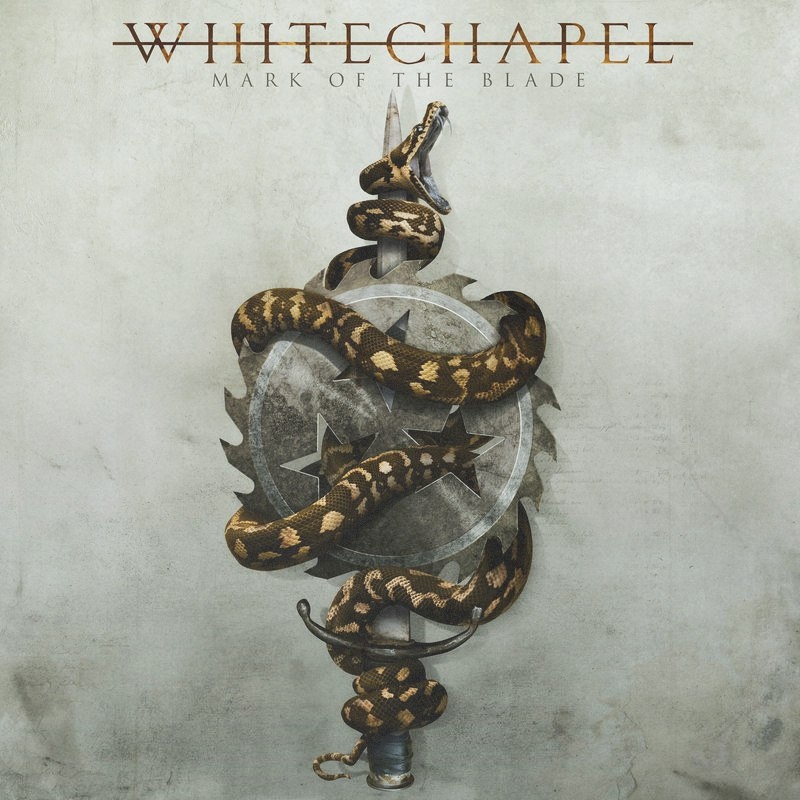On the songwriting front, Mark Of The Blade is back to mid-tempo basics and brutal simplicity on many of the songs, anchored by Phil Bozeman’s cadaverous low growl. The album isn’t without its surprises, with much discussion surrounding Bozeman’s decision to use clean vocals. Bring Me Home sees the band try their hand at the largely unexplored concept of the deathcore ballad, beginning with a tenebrous overture and featuring sombre clean vocals in the verses. These aren’t cleans for cleans’ sake, they have their place, adding some variety to an album where Bozeman keeps things nice and guttural.
As one of the frontrunners of deathcore, Whitechapel often end up under the magnifying glass of the genre’s conservatives. Bozeman blasts open the ever-present problem of elitism in Elitist Ones, a clarion call for respect. Further, the band has been criticised for its use of three guitars, perceived to be a bit overkill and ornate. It’s this melting pot that paves the way for the band’s gravid, unmistakable attack. The title track’s bruising steamroller riffs and crushing breakdowns serve as a prominent example of this technique’s effectiveness.
Save for the intricate guitar work on the instrumental Brotherhood, Whitechapel dispense with much of their trademark technical proficiency on Mark Of The Blade. They draw heavily on the quick and dirty techdeath elements, retaining that apocalyptic, old school deathcore vibe, shining through on songs like A Killing Industry.
This isn’t a particularly groundbreaking album, it’s Whitechapel doing what they do best – pounding you into submission from start to finish.
BY DIMITRI ZRAZHEVSKI







